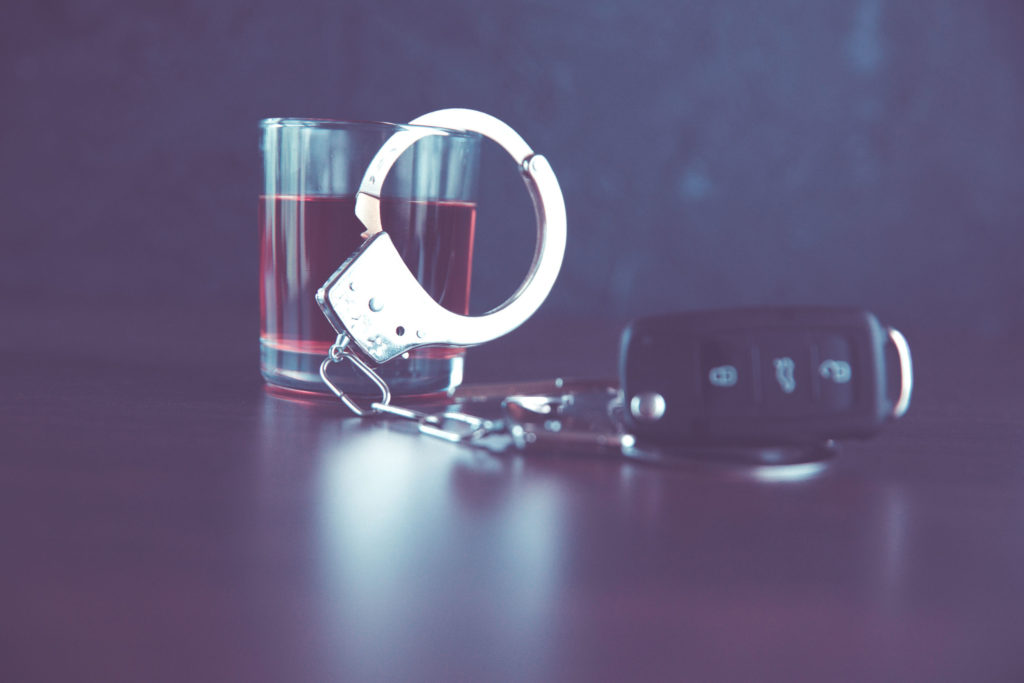Fighting a DUI in Arizona can be an intimidating prospect. Between Arizona’s zero tolerance policy for intoxicated driving and other tough DUI laws, it may feel like you’ve already been convicted as soon as you see blue and red lights in the rear view mirror.
No matter the allegations, however, there are almost always viable DUI defense strategies to explore. he legal team at Lerner and Rowe Law Group understands that each case is unique, and our DUI defense lawyers are committed to helping our clients achieve the best possible outcome, whether that means probation, reduced penalties, or even dropped or dismissed charges.
Fighting a DUI Charge in Arizona: 10 Possible Defenses
There are many ways an Arizona DUI lawyer may be able to defend you against a DUI charge. Some of these rely on the potential inefficacy of DUI tests themselves, while others focus on incorrect protocols by law enforcement officers and others.
1. DUI Breath Test Errors
For many law enforcement agencies, DUI breath testing is the most common way to measure one’s Blood Alcohol Concentration (BAC). This is due to its ability to produce an almost immediate result. However, it’s not always an accurate one.

This is because a DUI breath test doesn’t directly measure the amount of alcohol in your blood. Instead, it measures the amount of alcohol present in your breath. The breathalyzer device then uses a complex mathematical calculation to estimate the amount of alcohol in your blood.
DUI breath tests are subject to a wide range of errors including, but not limited to:
- Instrument malfunction
- Improper administration of test
- Presence of mouth alcohol
- Environmental factors, such as radio frequency interference
2. DUI Blood Test Errors
Generally speaking, DUI blood tests are much more reliable than field sobriety tests and handheld breathalyzer readings. That being said, there still remains a potential for errors in DUI blood tests. Multiple factors may contribute to an inaccurate blood test:
- Blood fermentation
- Break in the chain of custody
- Improper storage of blood sample
- Sample contamination
A Phoenix DUI attorney can request relevant information such as batch data to learn more about how your blood test was conducted. In doing so, your legal team can identify challenges to the admissibility or reliability of the blood results. Under some circumstances, your BAC results may be excluded from evidence. In many cases, this can lead to the complete dismissal of the DUI charge.
3. Presence of Mouth Alcohol
For breath test cases, mouth alcohol can be another crucial DUI defense.
DUI breath testing instruments like the Intoxilyzer 8000 capture a sample of breath from your deep lung tissue. But in addition to analyzing your breath, the breath test instrument can inadvertently capture mouth alcohol rather than the alcohol in your lungs, providing an unreliable reading. Mouth alcohol may occur in the following circumstances:
- Dental work trapped small amounts of alcohol-soaked food in your teeth
- You belched or regurgitated after having had a small amount to drink
- You used a mouthwash containing alcohol
- You used chewing tobacco
Each of these reasons can result in mouth alcohol generating a false high BAC reading on a Arizona DUI breath test. If this happens to you, you can challenge the breath test results.
4. Lack of Probable Cause

In order for police to stop your vehicle, they must establish reasonable suspicion that you committed a traffic violation or another crime.
If an officer doesn’t have the necessary legal grounds to stop your vehicle, you can challenge the traffic stop as a violation of the Fourth Amendment.
If the challenge is successful, any evidence that is obtained as a result of the traffic stop can be suppressed. Suppressed evidence cannot be used by the prosecution against you.
As a result, lack of probable cause can be very powerful when fighting a DUI in Arizona.
5. Radio Frequency Interference
Handheld breathalyzers can intercept radio frequencies sent out by other devices. In turn, radio frequency interference (RFI) can cause a breath test to produce an erroneously high BAC reading.
If RFI from other devices is picked up by a breathalyzer, it can cause the following malfunctions:
- Indicating alcohol is present in a DUI suspect’s system when it’s not
- Improperly provide a reading that the suspect’s blood alcohol level is over the Arizona legal limit of 0.08%.
Almost all electronic devices—such as those used to analyze DUI blood and breath samples—are susceptible to RFI or electromagnetic interference (EFI). Any type of radio transmitter, including police radios and cell phones, emit radio waves.
Although the Intoxilyzer 8000 was designed to terminate a test in progress if it detects a certain threshold of RFI. However, this safeguard is not infallible. Accordingly, a DUI lawyer should challenge breath testing results in which RFI may have impacted the results.
6. Police Didn’t Read Miranda Rights
Despite a common misconception, Miranda rights aren’t always required during an Arizona DUI arrest. If and when Miranda rights apply is a common question among those charged with a DUI.
Miranda rights are required when you have been arrested and the officer is conducting custodial interrogation. A “custodial interrogation” takes place when an officer asks you questions designed to elicit an incriminating response while you are in formal police custody.
If both of the above conditions are satisfied, the arresting officer must read you your Miranda rights. If they fail to do so, they risk exclusion of any statements from evidence upon a motion by your DUI defense attorney. Depending on the weight of these statements, their exclusion may be crucial in fighting a DUI in Arizona.
7. No Actual Physical Control of a Vehicle
One of the necessary elements of a DUI charge is that you were in actual physical control of a motor vehicle while impaired to the slightest degree (or with a BAC greater than 0.08%). If it’s unclear whether or not you were actually driving a vehicle, the Arizona courts will examine the “totality of the circumstances”. This may include:

- Why your car was parked or pulled over
- The location of the vehicle
- Whether the car was in neutral
- Whether the engine was on or off
Many times, police arrive on scene after a vehicle has already come to a stop. As such, they may be without sufficient information to determine who was driving and when. If you were not in actual physical control of the car, this can be an effective DUI defense.
8. Valid Prescription for Drug
If you have been charged with a drug DUI for a medication prescribed to you, a defense may be made per ARS 28-1381 (D) if you both possessed a valid prescription for the drug in question AND you were taking the medication as directed by a licensed physician. However, please keep in mind you may still face charges if you are found to have been driving impaired in any way.
9. Not Impaired to the Slightest Degree
In Arizona, it is illegal to drive while impaired to the slightest degree, whether it be from liquor, drugs, lack of sleep, or any intoxicating substance. A DUI prosecutor must simply prove, beyond a reasonable doubt, that you were impaired to the slightest degree while driving.
In fighting a DUI in Arizona, you or your lawyer will need to challenge the observations of the arresting officer and the integrity and reliability of any administered field sobriety tests. Factors that may support or diminish the allegation of impairment to the slightest degree may include:
- Your actions behind the wheel leading up to the traffic stop
- Your demeanor when interacting with law enforcement
- Your performance on any field sobriety tests
10. A Qualified DUI Attorney
Successfully fighting a DUI charge in Arizona comes down to one crucial decision: consulting with an experienced DUI lawyer who can explore all possible defenses to the charges you face and develop an aggressive case strategy. Our DUI attorneys can also review your case and may be able to help you get your Arizona license back after a DUI.
Charged with a DUI in Phoenix, Tucson, or elsewhere in Arizona? Lerner and Rowe Law Group is here to help. Consultations are free! Contact us today by calling 602-667-7777, chatting online with a live representative, or submitting the details of your case using our contact form. We offer affordable payment plans.

